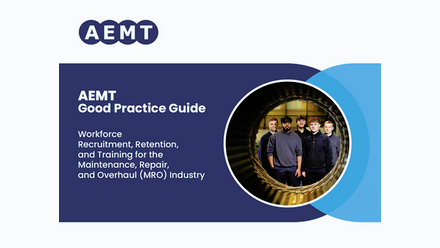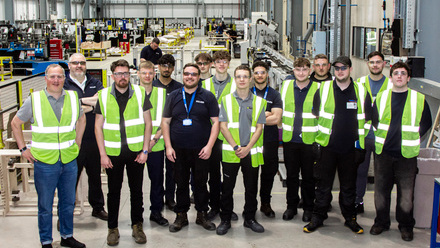Neurodivergence in Engineering
In the field of engineering, neurodivergent colleagues can bring a wealth of talent and unique perspectives to the table. Neurodivergence - a term encompassing conditions such as ADHD, autism, dyslexia, and others - is not a disadvantage in the workplace but rather a different lens through which problems can be confronted and solutions identified.
Firstly, many neurodivergent individuals possess a high degree of creativity and innovation. They often think outside the box, visualising solutions that may elude others. This ability to approach problems in unconventional ways can lead to breakthroughs and innovations with potential to revolutionise the field.
Secondly, neurodivergent colleagues often exhibit exceptional focus and attention to detail - elements considered to be critical in the engineering industry. Their ability to deeply engage with complex systems and patterns enables them to spot errors or inconsistencies that others might miss. Moreover, some neurodivergent individuals have a remarkable ability to absorb and retain vast amounts of information, a trait that can be particularly beneficial in a sector that is constantly evolving.
Lastly, neurodivergent individuals often have an intrinsic motivation to pursue their interests with intense dedication, making them highly passionate about their work. This passion can translate into increased productivity and commitment to the organisation's vision.
Recognising these strengths is vital for engineering bosses who wish to cultivate diverse, inclusive and high-performing teams. Rather than focusing on perceived deficits, it's important to create an environment where neurodivergent individuals can thrive and make significant contributions. By doing so, you not only support your colleagues' wellbeing but also benefit from their unique abilities and insights.
In conclusion, recognising and harnessing the strengths of neurodivergent colleagues can greatly enhance the collective intelligence, productivity, and innovative capability of engineering teams. As leaders, let's move beyond stereotypes and stigmas, and value the neurodiversity in our teams for the richness and breadth of perspectives it provides.
Autism in Engineering
Autism, known as Autism Spectrum Disorder (ASD), is a form of neurodivergence, consisting of a spectrum of conditions which impact an individual's social skills, communication, and behaviours. Within the engineering industry, individuals with ASD can provide a remarkable edge with their unique cognitive abilities and unconventional perspectives - when given the right support and working environment.
These individuals often have an exceptional tendency to see what others may miss, such as pattern recognition, attention to detail, and the ability to maintain focus for extended periods, all of which are considered to be crucial skills in the engineering sector. In fact, many of the world's most prominent tech companies actively seek out neurodivergent talent for these very reasons.
However, it's important to note that autism is a spectrum disorder, meaning everyone's experience will be unique. Some engineers with ASD may excel in highly technical roles, while others may flourish in strategic or creative capacities.
Inclusive practices are key to harnessing the potential of autistic employees. Work environments must be adaptable, and employers must ensure that they provide reasonable accommodations. For example, noise-cancelling headphones for those sensitive to auditory stimuli or flexible working hours for those who prefer a specific routine.
Increasing awareness and understanding of autism within the workplace helps in fostering a supportive atmosphere. Training sessions and workshops can be organised to facilitate this. It's also beneficial to have an open dialogue about autism, creating a space where individuals feel comfortable disclosing their condition, discussing their needs and perspectives freely.
Embracing neurodiversity is not just about being fair or compassionate - it can also make good business sense. By welcoming and supporting engineers with autism, businesses can access a pool of talent that can offer fresh perspectives, enhance problem-solving capabilities, and ultimately drive innovation.
In conclusion, neurodivergent engineers, including those with autism, are an underappreciated asset within the engineering sector. With the right support and empathy, they have the potential to make a significant impact on the industry, pushing the limits of innovation and effectiveness. Hence, it's time for engineering firms to recognise and capitalise on the unique strengths and capabilities of this exceptional group of individuals.
ADHD in Engineering
Attention Deficit Hyperactivity Disorder (ADHD) is a neurodivergent condition that affects a significant number of people in the UK. Engineers with ADHD tend to be highly creative, innovative, and able to think outside the box - qualities that can drive your team to new heights. They often thrive in dynamic environments, bringing a unique perspective that can lead to breakthroughs in complex engineering problems. Their intuitive understanding and enthusiasm can stimulate a more vibrant and productive work setting. ADHD is also characterised by symptoms like impulsivity, inattention, and hyperactivity.
To fully leverage these strengths, it's critical to provide an ADHD-friendly work environment. This may involve a range of reasonable adjustments - such as allowing flexible working hours, providing quiet spaces for concentrated work, and using project management tools to help organise tasks.
Regularly communicating with your ADHD employees about their needs and preferences can also go a long way in nurturing an inclusive environment. Keep in mind that everyone's experience with ADHD is unique, and what works for one individual may not be effective for another.
In a nutshell, recognising and understanding ADHD in your engineering team is not only about supporting your employees' mental health; it can be a catalyst for innovation and productivity. By fostering a supportive atmosphere, your team can become a hub of creative problem-solving and continuous improvement, significantly benefiting your business in the long run.




